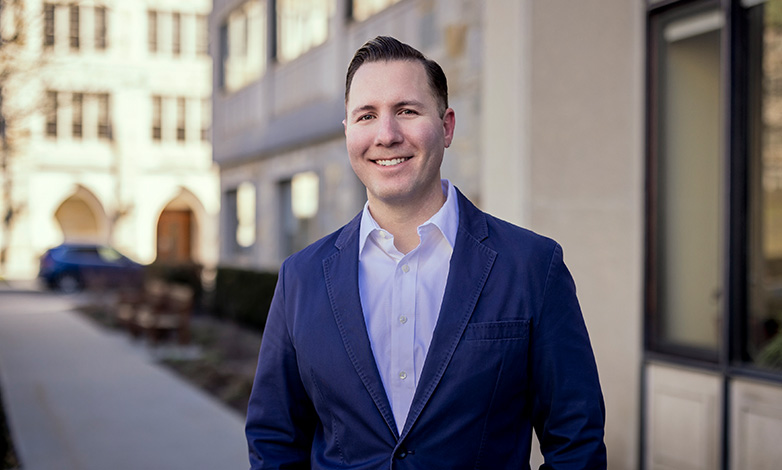Volunteering, even a small amount, is linked to slower age acceleration for both retirees and working people, finds a new study from the Brown School at Washington University in St. Louis.
“We found that the effects of a moderate level of volunteering — between 50 to 199 hours per year, or about one to four hours per week — were strongest for retired people,” said Cal Halvorsen, an associate professor at the Brown School and co-author of the study “Does volunteering reduce epigenetic age acceleration among retired and working older adults? Results from the Health and Retirement Study.” The study will be published in the January issue of the journal Social Science & Medicine.

“It’s quite possible that the act of volunteering provided a sense of social and meaningful interaction, and physical activity, that those who were still working were already receiving,” he said. “Those qualities have separately been linked to less rapid epigenetic age acceleration.”
Using data from the national Health and Retirement Study, the authors found that volunteering was linked to slower biological aging.
Among retired individuals, moderate volunteering was significantly associated with decelerated epigenetic age acceleration, indicating greater benefits for retirees compared to working individuals.
“In other words, at the biological level, volunteers aged just a bit slower than non-volunteers,” Halvorsen said.
The more one volunteers, the more pronounced the impacts become.
At more than 200 hours of volunteering, the health benefits are significant for both retirees and working individuals, suggesting that higher engagement in volunteering can promote well-being regardless of one’s work status.
“In general, we found that volunteering more than 200 hours a year — more than about 4 hours per week, on average — was associated with the greatest reduction in age acceleration,” Halvorsen said. “This type of consistent engagement likely provides a higher ‘dose’ of the social, physical and purposeful interaction that we think is good for people.”
Even with lower amounts of volunteering — one to 49 hours per year — the benefits were more pronounced for those who were retired.
“This might be because the volunteering made up for some of the beneficial effects of engagement in paid work that retirees no longer had,” he said. “So overall, I think we can generally say that volunteering later in life is good for you, but additional research could definitely help to explain some of these specific findings.”
The authors considered additional health factors, not only volunteering time.
“We took many additional health factors into account when running our study, which is why we feel more confident in our results,” Halvorsen said.
The researchers designed the study to make the volunteer and non-volunteer groups fairly comparable in other characteristics.
“To better estimate the epigenetic age effects, we included self-reported health and the number of depressive symptoms in the weighting scheme,” he said. “In our final models, we also controlled for other health variables that are strongly associated with epigenetic aging, including frequency of physical activity, smoking status, binge drinking, obesity and more.”
The other authors on the study were lead author Seoyoun Kim, of Texas State University; Claire Potter, of Queen’s University Belfast; and Jessica Faul, of the University of Michigan.
